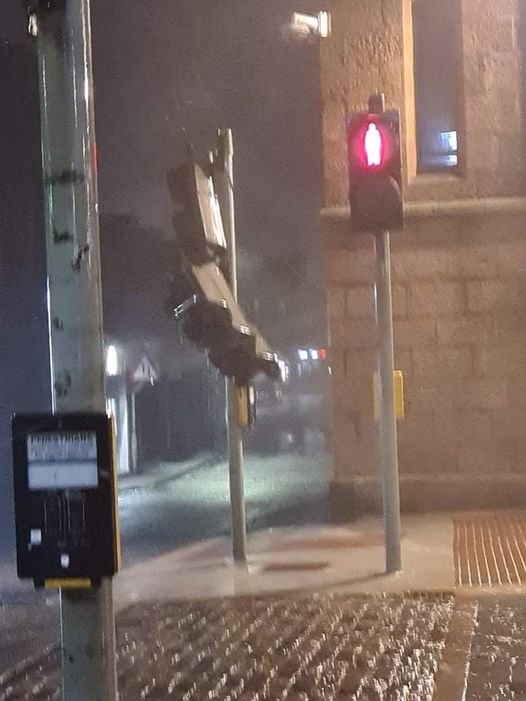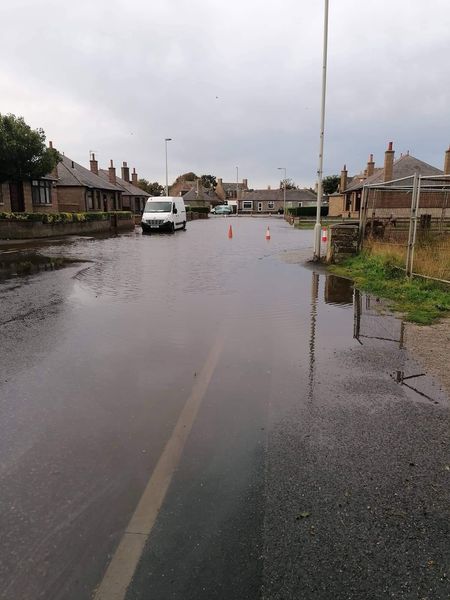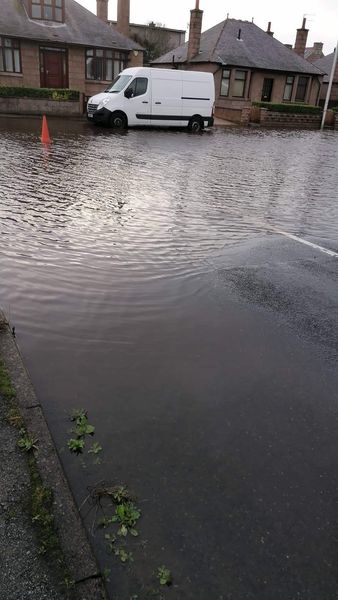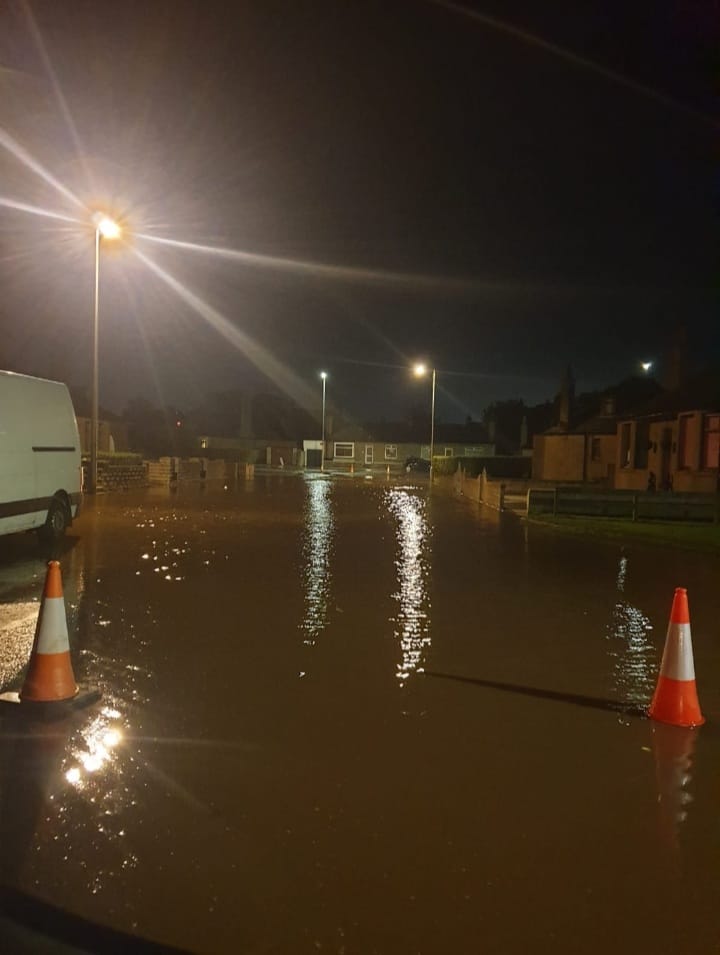Peterhead Lorry Parade 2021
Peterhead Lorry Parade 2021
Peterhead Lorry Parade 2021
Red weather warning issued for the north and east of Scotland 26/11/2021
Storm Arwen will bring a spell of very strong winds to parts of northeast Scotland Friday 15:00 – Saturday 02:00
High winds associated with Storm Arwen bring damage and travel disruption.
⚠️⚠️⚠️ Rare Red weather warning issued ⚠️⚠️⚠️#StormArwen will bring a spell of very strong winds to parts of northeast Scotland and northeast England
— Met Office (@metoffice) November 26, 2021
Friday 1500 – Saturday 0200
Latest info 👉 https://t.co/QwDLMfRBfs
Stay #WeatherAware⚠️ #Redwarning pic.twitter.com/BhX3J6bT85
Various areas across Scotland, Aberdeenshire have been left without power this evening as heavy wind hits the country
![]() Power is out in Mintlaw now
Power is out in Mintlaw now![]() Longside power is out
Longside power is out![]() Fetterangus power is out
Fetterangus power is out![]() Cruden Bay power is out
Cruden Bay power is out![]() Hatton power is out
Hatton power is out![]() Memsie power is out
Memsie power is out![]() Rora power is out
Rora power is out ![]() Maud power is out
Maud power is out ![]() Fetterangus power is out and etc.
Fetterangus power is out and etc.
Peterhead Weather: Around the Peterhead and area, there’s debris flying everywhere. Tiles, drain pipes, sheds and even roofs are coming off.
From Stagecoach: Due to continuing adverse weather conditions, the Buchan services have been cancelled, this is the X60, X63, 61, X67 and X68, also the 66 and Fraserburgh town service. The Peterhead town service will continue as an hourly service.
In town centre, traffic lights are down at Queen Street

A large number of fallen trees blocking the roads around Aberdeenshire and Peterhead, as a result, some residents could not get home!
Roof blown off at the Gask turn-off beside Cruden Bay


Follow Peterhead.Live on Facebook or Twitter for get more actual information.
Peterhead Fireworks
A new Starbucks Peterhead Drive Thru store open on Buchan Way, on Friday 15 October.
Branch Directors Alistair Hastie and Gavin Davidson are pleased to be able to welcome the people of Peterhead to the new branch. Proud to be an independent builder merchants, MKM Building Supplies will provide a comprehensive merchant offering, alongside state-of-the-art kitchen and bathroom showrooms, to the Peterhead area.
MKM Peterhead store has created 15 jobs in the local area, providing a competitive alternative for Peterhead’s building sector. What’s more, customers visiting on the day will be in with a chance to win exclusive tickets to watch a Peterhead FC game from the comfort of a hospitality box for one match this season.
MKM supply the full range of goods including, timber, plumbing and heating supplies, landscaping and heavy side. MKM also have roofing and breath-taking Kitchen and bathroom showrooms.”

Source : MKM


Peterhead incident - Burst water main
How is reported from residents about burst water main in Peterhead on Station road junction with West road, affecting Kirkburn drive also.
Many households without water.
A burst water pipe has been located on West Road causing an interruption to water supplies for customers in #Peterhead #AB42. Our teams are currently onsite preparing to carry out a repair and restore supplies to normal as soon as possible. https://t.co/YZFn8ev7AU
— Scottish Water (@scottish_water) October 9, 2021


Part of this Affecting Sutherland Avenue, Kirk Street, King street, Constitution street, Mary street, Windmill street, Queen street, Windmill court, Prince street, Station road, Hope street, Lindale road, North street, Catto area, Pifour court, Uphill lane, Merchant street, St Peter street, Meethill area – brown water or no hot or cold water, apparently Longate is affected as well.

Water board currently working on it.
![]() UPDATE – 5:15PM
UPDATE – 5:15PM![]()
![]() Updated repair time of 9:00PM this evening
Updated repair time of 9:00PM this evening![]()
Scottish Water are currently repairing a burst water pipe which is causing the interruption to the water supply for customers in the area of Peterhead.
The repair being carried out in #AB42 #Peterhead is now complete and the water is beginning to recharge into the network. Thank you for your patience throughout.https://t.co/vfYFWmxzYR
— Scottish Water (@scottish_water) October 9, 2021
The repair being carried out in Peterhead is now complete and the water is beginning to recharge into the network.
If you find your water is brown or cloudy then don’t worry.
Let your taps run for 20 minutes or so and it will clear.

Peterhead.Live on Facebook or Twitter for get more actual information.
Peterhead Power Station
Peterhead Business
Today Prince Charles helicopter landing at the Peterhead links.
Buses in Peterhead been rerouted after Prince Charles helicopter landed at the side of the road.
Due to Prince Charles helicopter landing at the links service 82 buses are currently being diverted up West Road then turning left up Cairntrodlie until further notice pic.twitter.com/y3im2dfvSP
— Stagecoach Bluebird (@StagecoachBBird) October 5, 2021
Prince Charles visiting Peterhead, to meet with an award-winning seafood company.
Charles, known as the Duke of Rothesay in Scotland, visited Amity Fishing Company in Peterhead.
The company is headed by renowned skipper Jimmy Buchan.
Priding itself on quality control from shore to door, the team at Amity provides seafood from Scotland’s coast to people in the UK.
Amity Fish Company taken a Great Taste Award.
https://www.facebook.com/AmityFishCompany/posts/1292719317825351Charles will then pay a visit to Rora dairy which produces a range of Scottish yogurts on its organic family-run farm in Peterhead.
https://www.facebook.com/roradairy/posts/4734951313216402

Peterhead.Live on Facebook or Twitter for get more actual information.
Base for airships in 1915 to patrol the North Sea